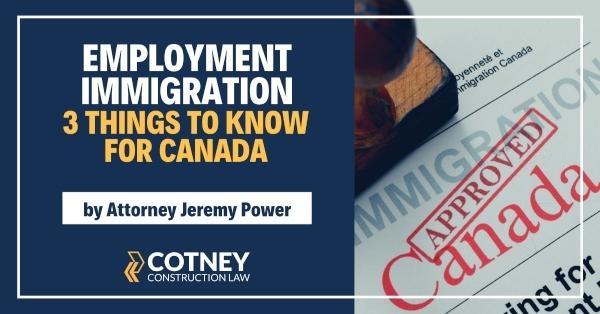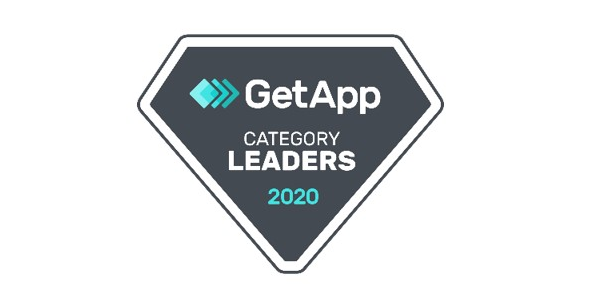UP TO THE MINUTE
Employment Immigration – 3 Things to Know for Canada

By Jeremy Power, Cotney Construction Law.
There are perhaps no two countries more inter-connected than the United States and Canada.
The United States is Canada’s largest trading partner, where goods, services, and people normally flow unimpeded across the world’s largest international border. However, COVID-19 and associated government actions related to it have drastically interrupted this once free-flowing exchange. Below, we provide a list of three things to keep in mind when attempting to bring foreign workers into Canada.
1. Governing laws
Federally, Canada has three primary pieces of legislation that govern the parameters surrounding immigration into Canada. These are the Immigration and Refugee Protection Act, the Immigration and Refugee Protection Regulations, and the Citizenship Act. Though immigration into Canada is federally regulated, the Canadian constitution allows for provinces to submit requests for certain types of needs. For example, Ontario and British Columbia have large agricultural sectors, so they may request workers to meet the agricultural sector’s needs. In Atlantic Canada, there is always a need for workers in the fish and seafood processing industry, so the four provinces in Atlantic Canada may request workers specific to those industries. It is a good idea to check local laws to see how your business can avail of these specific government initiatives – and always check the local COVID-19 restrictions.
2. Admissibility
Foreign nationals may be refused entry or required to leave Canada if they are found to be inadmissible – this may happen for a variety of reasons, but three common reasons are:
-
They have committed or been convicted of a crime inside or outside of Canada.
-
They have directly or indirectly misrepresented or withheld material facts.
-
They have a medical condition that is likely to be a danger to public health or public safety or might reasonably be expected to cause excessive demand on health or social services.
During the COVID-19 crisis, the third reason is very important. Due to the ongoing nature of the pandemic in the United States, even workers with all necessary documentation to enter Canada may still be denied entry. Having a doctor’s note, evidence of a recent COVID-19 test and a valid exemption from quarantining in Canada will all help in getting across the border.
3. Business-related immigration
As Canada is a nation with only about one-tenth the populace of the U.S., Canada’s immigration system is largely based on the needs of Canada’s labour markets. With that in mind, there are myriad federal and provincial programs to assist employers with Canadian immigration needs. Federally, there are three immigration programs. These are the:
-
Federal Skilled Worker Program,
-
Federal Skilled Trades Program, and the
-
Canadian Experience Class
To qualify for any of these programs, various requirements must be met, and these requirements are subject to change without much notice during the COVID-19 pandemic.
There are also provincial programs unique to each province, generally referred to as the Provincial Nominee Program. To immigrate as a provincial nominee, an applicant must first apply to the relevant province or territory. Of course, criteria vary among the provinces and territories and can change without notice, especially during COVID-19. The websites for each province should be consulted for the most up-to-date information on selection criteria.
Learn more about Cotney Construction Law in their RoofersCoffeeShop® Directory.
Written by Jeremy Power, a lawyer in Cotney Construction Law’s Toronto office. To contact Jeremy, please email jpower@cotneycl.com.
Disclaimer: The information contained in this article is for general educational information only. This information does not constitute legal advice, is not intended to constitute legal advice, nor should it be relied upon as legal advice for your specific factual pattern or situation.
Source: Trentcotney.com





















Comments
Leave a Reply
Have an account? Login to leave a comment!
Sign In